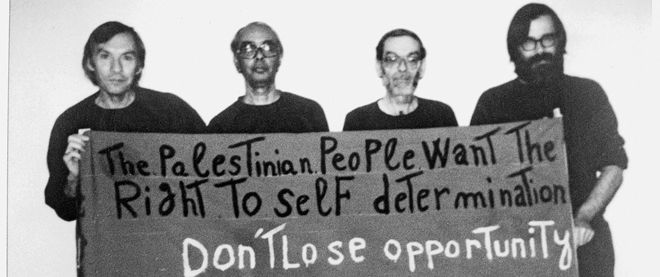Bill C-10’s first test may involve Americans kidnapped 30 years ago
The Tory crime bill will allow lawsuits to be brought against countries that engage in and support terrorism, like Hezbollah in Lebanon
Share

Americans David Jacobsen and Alann Steen spent years blindfolded and in chains, never knowing if they would one day walk free, or be shot and dumped in a roadside ditch.
The two were among more than 90 foreigners in Lebanon kidnapped and held hostage by Hezbollah, an Iranian-backed militia, during the 1980s and ’90s. Jacobsen, who was director of the American University of Beirut’s medical centre, was captive for 532 days, before he was released as part of a deal that saw the U.S. facilitate the secret sale of weapons to Iran. Steen, who was teaching at Beirut University College, was locked up for almost five years. Both were threatened and abused. Guards beat Steen so badly they knocked fillings out of his teeth. He still suffers seizures as a result.
Jacobsen and Steen never lost the will to defy their captors. Once, when a guard held his gun to the back of Jacobsen’s head and told him he would die, Jacobsen said he was very busy and asked the man to come back and shoot him after lunch the following day. Steen, a former Marine, punched a guard who was beating him. He called another by the name “Asshole,” telling him it meant “Big Boss.” A third guard was “S–thead,” which Steen assured him meant “Little Boss.”
Today, neither is consumed by their time as hostages, though they say their memories of captivity are strong. Both Jacobsen and Steen, along with their families, have sought to extract financial retribution from their kidnappers’ patrons—the government of Iran—and new proposed legislation by the Harper government could make that pursuit easier. “I want to punish them and let them know that they can never do that again to another human being. That is my goal,” Jacobsen told Maclean’s.
Jacobsen has already successfully punished Iran. He sued the Islamic Republic in a U.S. court and was awarded a judgment of US$9 million, which he was able to collect from Iranian assets in America.
Alann Steen and his wife, as well as Jacobsen’s children and sister, also sued Iran and were similarly awarded multi-million-dollar judgments. But by then there were no Iranian assets in America they could collect on.
When a defendant doesn’t have accessible assets in one locale, successful plaintiffs can try to collect in another where the defendant does, even if that locale is in a different country. Last year, the plaintiffs sought to have the American judgments enforced in Canada. They took their case to the Ontario Superior Court of Justice, where it was dismissed because of past jurisprudence related to the State Immunity Act, which protects sovereign states from the jurisdiction of Canadian courts.
An appeal on that decision will be heard in May. The act contains an exception that says a foreign state is not immune from a Canadian court’s jurisdiction if the proceedings relate to “any commercial activity of the foreign state.” The plaintiff’s lawyer, Mark Arnold, argues Iran directed Hezbollah to kidnap foreigners in exchange for money and weapons, and the kidnappings were therefore commercial in nature.
In the meantime, legislation is making its way through Parliament that will almost certainly provide the American hostages and their families with new legal tools.
Bill C-10, the omnibus crime bill expected to become law this year, will amend the State Immunity Act to allow lawsuits to be brought against countries that engage in or support terrorism. The amendments will also permit Canadian courts to consider enforcing the judgments of foreign courts against states that do the same, provided those countries are named on a government list. It is a reasonable assumption that Iran will be listed as a state sponsor of terrorism, as it is under similar American legislation.
“If C-10 is passed before we get to the Court of Appeal, it’s going to be very interesting,” says Arnold. “Does it render this appeal moot? It may. I would then relaunch the case the next day, and I would claim the State Immunity Act no longer stands in our way.”
If so, the first test of a much-debated Canadian bill may involve Americans kidnapped by Iranian proxies in Lebanon decades ago. It will be an unlikely twist in a long search for justice by the hostages and their families.
“I don’t even think about the money. If it happens, that’d be fine,” said David’s son Eric, who didn’t know whether his father was alive or dead for much of David’s time in captivity. “But that’s really not what’s behind it at this point. As a family member you do want some sense of justice. You don’t want it left out there, completely unfinished. You don’t want to be left as a victim, knowing that the perpetrators were able to get away with it, without any punishment. We won a judgment. It’s been clearly proven that Iran was fully responsible for my father’s captivity, for the physical and emotional torture he went through, and for the indirect but very real torture that his family and friends went through.”